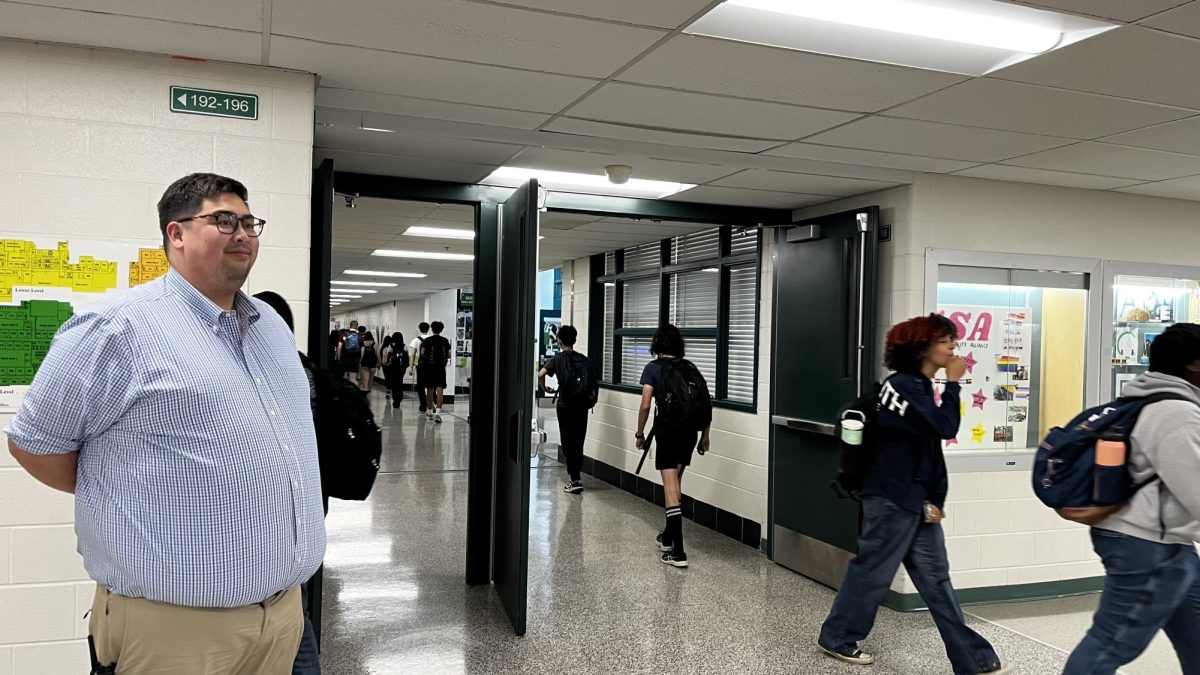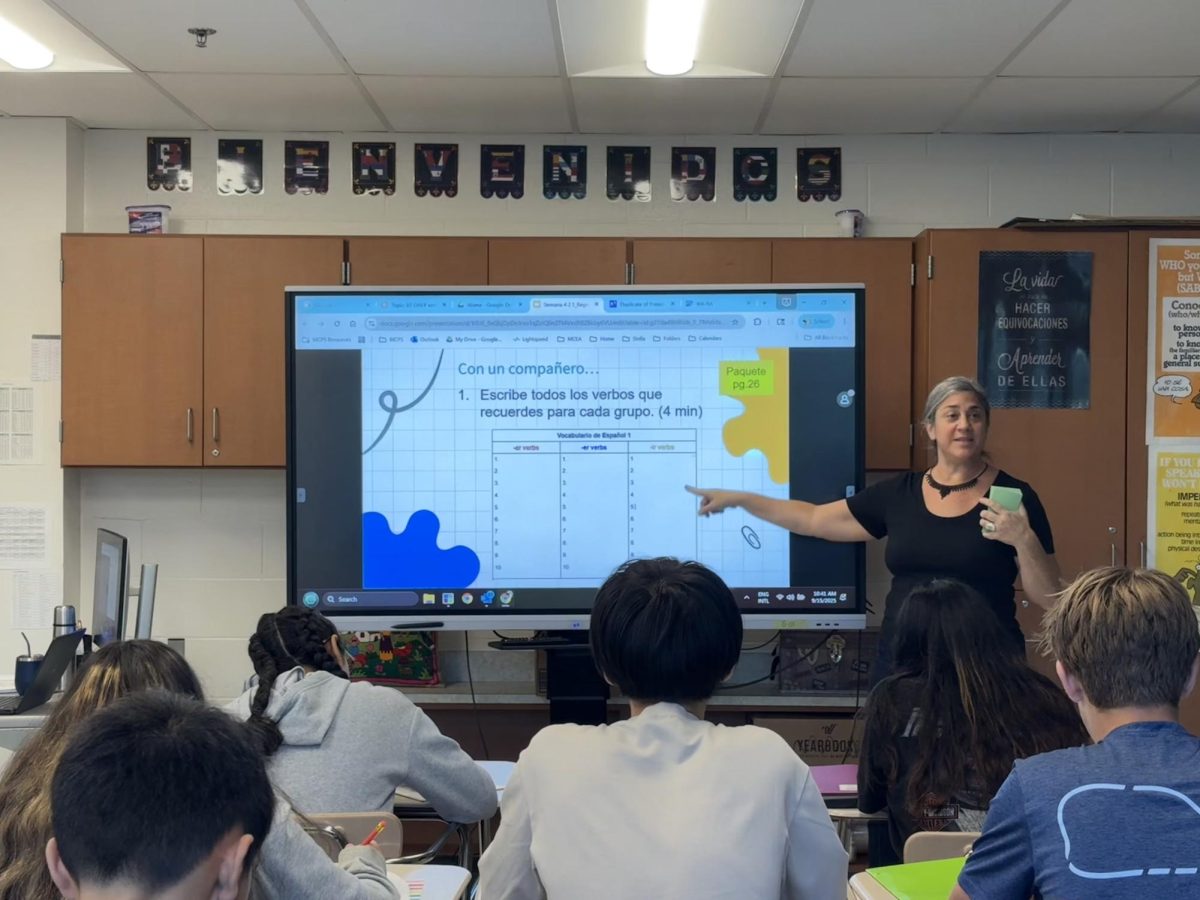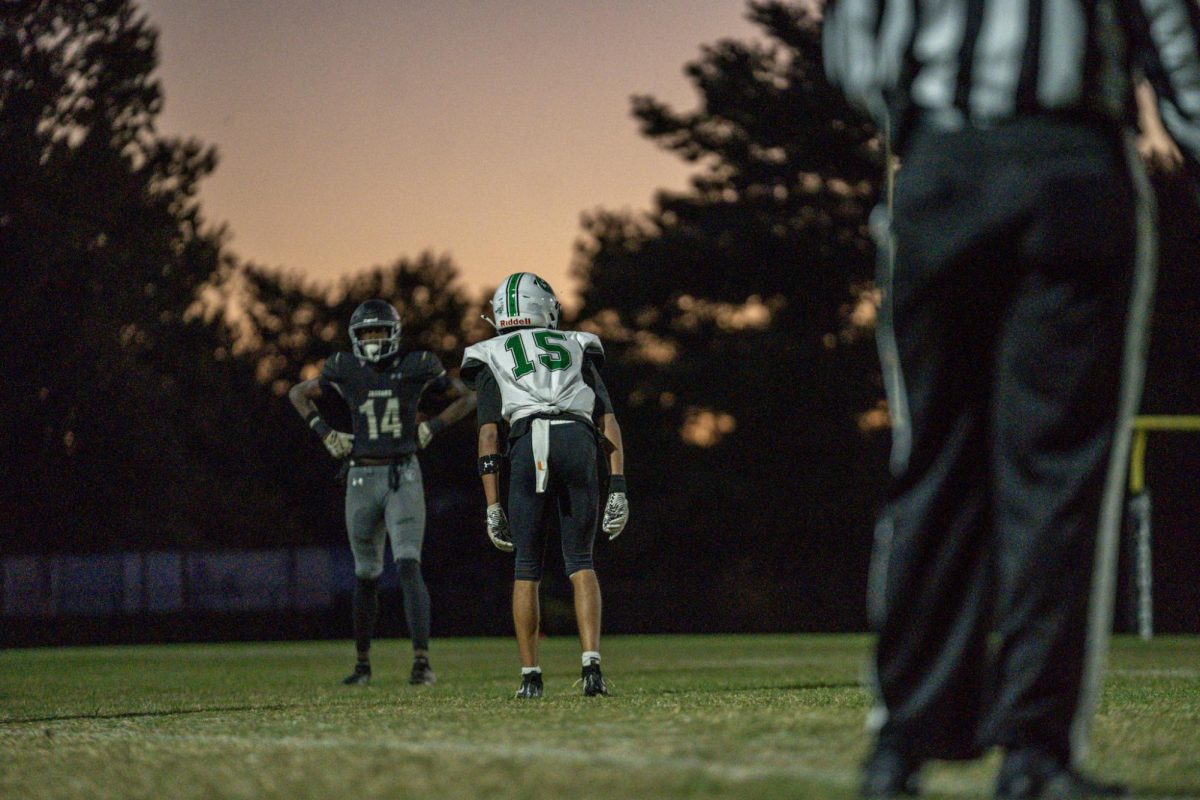*signifies name change
His heart pounding, Griffon* carefully removed a tiny, square piece of paper from the plastic bag he was holding. He could see the yellow smiley face on the paper looking up at him as he raised his hand to his mouth. Placing the paper on his tongue, he felt it dissolve and braced himself for what was to come.
Recalling the events of that day, Griffon tried to put the indescribable into words.
“I can only describe it as [the] moment you’re about to take off on an airplane,” he said.
Griffon’s experience is not an uncommon one; in fact, it’s an experience had by many students at Walter Johnson. Kirk* described a feeling of “extreme connectivity to the people that I was with, to the nature around me, and to the forces of life.”
Others describe an alternative experience.
“It was like eternal hell. Every moment felt like eternity, and every moment just felt like absolute hell,” Angela said.
Whether the result was life-changing or mentally scarring, these students all made the same decision: to take psychedelic drugs.
* * *
Psychedelics are classified as Schedule One drugs, meaning there is no officially sanctioned medical use and high potential for abuse. However, many students don’t heed the warnings.
“A large part of psychedelics for me…. is to self-examine, reflect, understand our inner problems and attempt to see some kind of solution, or come to peace with the chaos,” said Kirk*, a WJ student who has taken psilocybin mushrooms.
LSD — also known as acid — and psilocybin “magic mushrooms” are two psychedelics that are more commonly used by WJ students. The act of taking these drugs is called a “trip” because of how otherworldly its effects are, causing intense visuals, hallucinations and feelings of euphoria.
“Objects start to distort, everything gets much brighter, and contrast drastically increases,” said Eddie*, who has taken acid eight times. “LSD made me feel like I was mentally insane. I would laugh at everything and I would feel very confused.”
According to Kirk, many students who try psychedelics are interested in its “potential for expansion.”
“In each of my experiences, I’ve had these periods of self reflection, and they’ve helped me tremendously in terms of attempting to grow as a person, becoming comfortable socially and reducing unnecessary anxieties.”
In his eyes, many students aren’t taking psychedelics for the sake of taking drugs – they’re seeking experiences that hold deeper meaning.
“Whenever I hear someone talk about a trip, it’s usually with excitement, curiosity and satisfaction,” Kirk said. “It’s not the same as someone talking about their head rush from a sick Juul rip. It’s way more substantive and fulfilling.”
Many students who use psychedelics think along the same lines as Kirk.
“The high from psychedelics is so different compared to other drugs,” said Griffon, who has used LSD twice. “People use addictive drugs like opioids in order to feel something, but people use psychedelics in order to see stuff.”
While Griffon acknowledges that some students have different intentions with psychedelics compared to other drugs, he also said students might try them just to see what they’re all about or to sound experienced.
“They just want clout,” he said. “They just want to say they’ve done it.”
Psychedelics seem to appeal to so many WJ students partly because they aren’t considered to be chemically addictive.
“Most people leave acid as a one-and-done type of experience,” Paul* said. “Taking psychedelics is more of an experience rather than something you depend on.”
However, this aspect causes many to ignore other possible dangers of the drug.
Angela* took LSD in a stressful setting, which is a factor that can potentially trigger a bad trip for the user — a distressing experience that can result in psychological damage. Impostor drugs are another danger for not only psychedelics, but for many other drugs that come from an unreliable source.
“We didn’t test the drug,” Angela* said. “I can’t be sure it was LSD, it couldn’t have just as likely been the drug 25i-NBOMe, which is like LSD’s evil twin.”
In addition to the lacing of unknown chemicals, WJ teacher Andrea Morris worries about students developing psychological dependencies to drugs like psychedelics.
“Even if the substance isn’t addictive, you still start to rely on something else to make you happy,” Morris said. “Even if you’re not chemically dependent, you are going to be mentally dependent.”
* * *
Bad Trips: When Experiences Go Wrong
*signifies name change
In retrospect, Angela* described herself as a “reckless 15-year-old” when she tried psychedelics her first and only time. She ingested close to two tabs of LSD. Her trip lasted about eight to 10 hours; every moment feeling like “absolute hell.”
“The drug exaggerates emotions to what feels like an other-worldly level,” she said. “So if you’re stressed, you feel like you’re dying. But it’s the same for good emotions — if you feel calm, it’s the calmest you’ll ever feel.”
Although it’s unlikely to overdose on LSD, taking too much of the drug can cause a “bad trip,” causing the user to experience unpleasant hallucinations, intense anxiety and paranoia. This can result in an extremely disturbing experience, potentially leaving behind psychological damage.
“I thought because you couldn’t overdose on [psychedelics], then they must be safe, and worst case scenario, I’d have a bad time,” Angela said. “But what I didn’t really understand was how mentally dangerous a ‘bad time’ could be….and that mentally dangerous can be just as dangerous as physically dangerous.”
Before her experience, Angela had expected to enjoy LSD.
“I thought it was going to be intense, but in a good way,” she said. “What people often say about the experience is that it can’t be described, so I knew I was going into something completely unknown.”
Angela experienced similar visuals to what most students describe. In her case, everything appeared to be wavy and vibrating, as if underwater. But it wasn’t the visuals that made her experience so terrifying – it was how the drug made her feel.
“It was much more than the normal levels of stress or anxiety,” she said. “I don’t think it’s even possible to feel that strong of an emotion without a drug. It’s not really something you’re meant to feel.”
Griffon*, who has tried LSD multiple times, has stopped using the drug due to worries about having a bad trip.
“You have to be in the right state of mind [to take psychedelics], otherwise it’ll make you think about things you don’t want to think about, and see things that you don’t want to see,” Griffon said. “That’s why I don’t want to do it [psychedelics] anymore. I don’t want to risk it.”
As of now, Angela’s not sure if she’ll try psychedelics again.
“If I did do them again, it would be in a smaller dose, unlike the stupidly large dose I took,” she said. “It would have to be in the perfect setting. But I am afraid I’ll never be able to enjoy them because of my past experience.”
Despite her past trials, Angela doesn’t look down on the drugs, nor does she look down on those who take them.
“I don’t think they deserve the reputation they get, even if I experienced the horrible side of them.”















